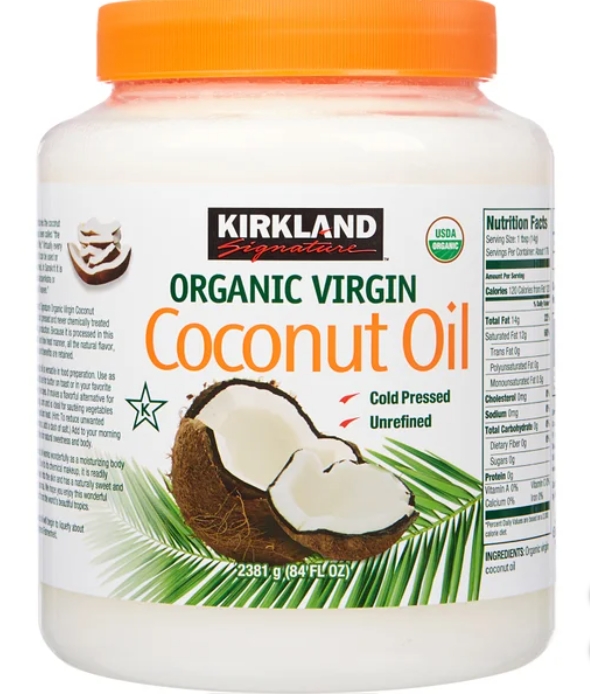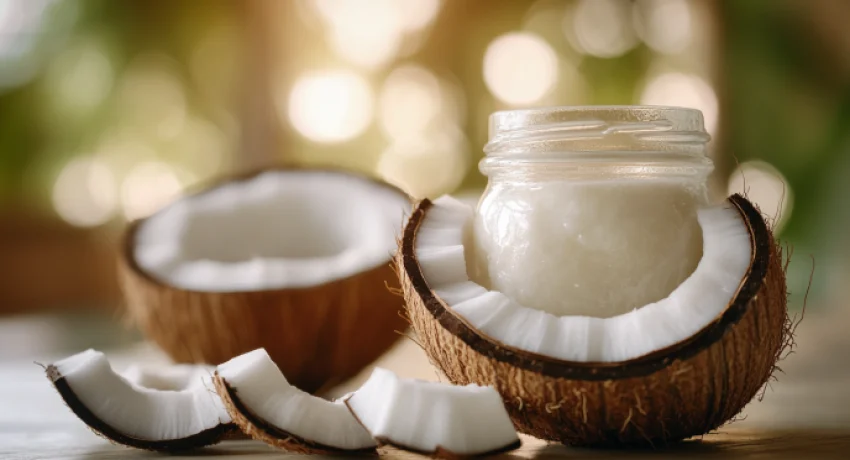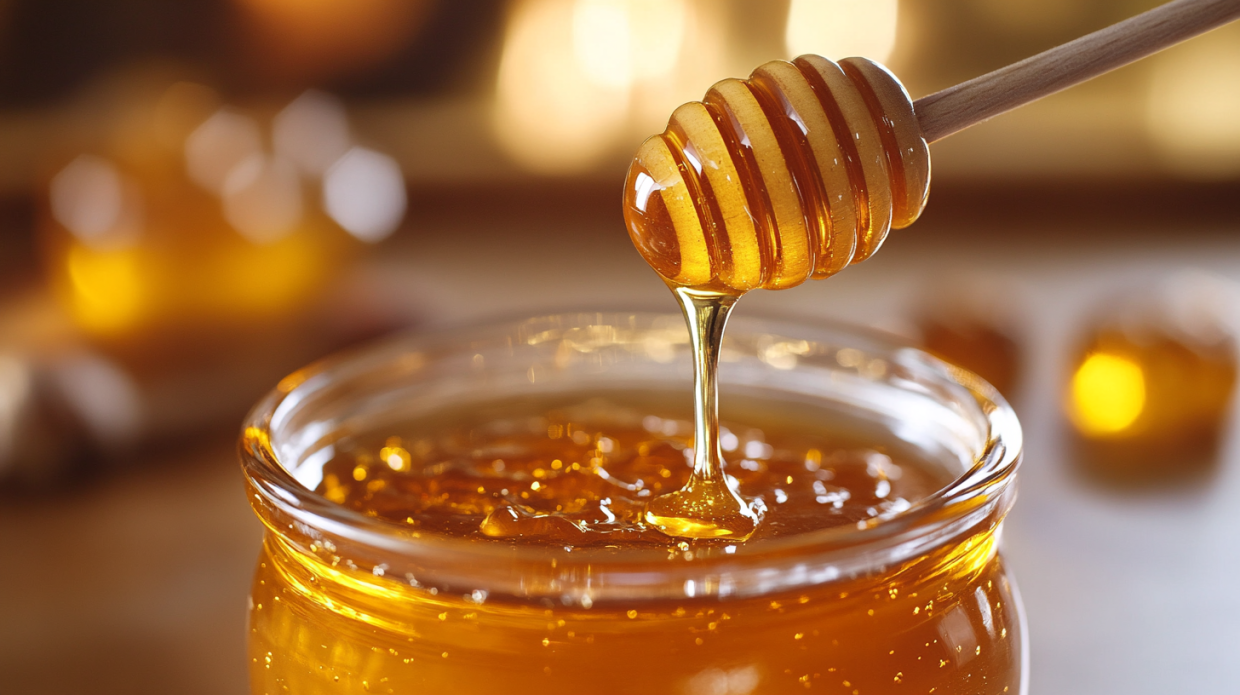
Kirkland Signature, Organic Virgin Coconut Oil, 84 fl oz
- USDA Organic
- Cold Pressed
- Unrefined
- Chemical Free
- 84 fl. oz
Unlocking the Potential of Costco’s Hidden Gem for Your Kitchen, Body, and Home
In the ever-expanding universe of coconut oil products, one particular brand has captured the hearts (and pantries) of health enthusiasts, culinary adventurers, and budget-conscious shoppers alike. Kirkland Signature Organic Virgin Coconut Oil has become a household essential for those seeking quality and value in equal measure. Having personally incorporated this versatile elixir into countless aspects of my daily routine, I’m excited to share everything you need to know about this remarkable product.
Whether you’re a coconut oil veteran or a curious newcomer, this comprehensive guide will explore the organic credentials, culinary applications, beauty benefits, and exceptional value proposition of Kirkland’s beloved coconut oil. Let’s dive into the tropical wonder that’s more than just a cooking ingredient—it’s a lifestyle enhancement.
The Organic Question: Is Kirkland Coconut Oil Really Organic?
The short answer? Yes, absolutely. Kirkland Signature Coconut Oil proudly bears the USDA Organic certification, meaning it meets strict standards for organic production. This isn’t just a marketing gimmick—the certification ensures the coconuts used were grown without synthetic pesticides, herbicides, or genetically modified organisms.
The organic distinction matters significantly when it comes to coconut oil. Conventional coconut farming can involve chemical inputs that may leave residues in the finished product. By choosing organic, you’re not only protecting your body from potential chemical exposure but also supporting more sustainable agricultural practices.
I’ve found that Kirkland’s commitment to organic sourcing contributes to its clean, pure taste profile—something that becomes immediately apparent when compared to non-organic alternatives. The absence of chemical processing agents means you’re getting coconut oil in its most natural state, with all beneficial properties intact.
Virgin, Extra Virgin, or Something Else? Understanding Kirkland’s Classification
When browsing coconut oil products, terminology can get confusing. Is Kirkland’s offering virgin, extra virgin, refined, or unrefined? Here’s the clarity you need: Kirkland Signature Coconut Oil is labeled as “organic virgin coconut oil.”
Interestingly, unlike olive oil, the coconut oil industry doesn’t have standardized definitions distinguishing “virgin” from “extra virgin.” In practice, these terms are often used interchangeably for coconut oil. What matters most is that Kirkland’s product is unrefined, meaning it hasn’t undergone bleaching, deodorizing, or other chemical processes that strip away natural nutrients and flavor compounds.
The cold-pressed production method used for Kirkland Coconut Oil ensures that the oil is extracted at temperatures below 120°F, preserving heat-sensitive nutrients and compounds that contribute to its health benefits. This minimal processing approach results in a product that retains its natural coconut aroma and flavor—a hallmark of quality virgin coconut oil.
The Culinary Virtuoso: Kirkland Coconut Oil in Your Kitchen
One of the most compelling reasons to keep Kirkland Coconut Oil stocked in your pantry is its remarkable versatility in cooking applications. With a smoke point of approximately 350°F, it performs admirably in medium-heat cooking methods like sautéing and baking.
When I first switched to using coconut oil for cooking, I was concerned about everything tasting like coconut. While Kirkland’s product does retain a mild coconut aroma and flavor, I’ve found it’s subtle enough that it complements rather than overwhelms most dishes. In sweet applications like baked goods, the coconut notes actually enhance flavors, particularly chocolate and tropical fruits.
For those who prefer a completely neutral oil, Kirkland does offer a refined coconut oil option, but the virgin variety offers superior nutritional benefits while still being remarkably versatile. I’ve successfully used it for:
- Sautéing vegetables (particularly delicious with leafy greens)
- Pan-frying eggs (creates a beautifully crisp edge)
- Roasting root vegetables (sweet potatoes develop an incredible caramelization)
- Baking cookies, cakes, and quick breads (produces exceptionally tender results)
- Making homemade granola (helps achieve perfect clumping and crunch)
- Creating dairy-free frostings and fillings (solid at room temperature, perfect for structure)
Perhaps most impressively, Kirkland Coconut Oil shines in vegan cooking as a butter substitute. Its solid-at-room-temperature property makes it perfect for creating flaky pastry crusts, rich vegan buttercreams, and even homemade “chocolates” when combined with cocoa powder and sweetener.
The Keto Connection: Why Kirkland Coconut Oil Is a Low-Carb Lifestyle Staple
For those following ketogenic or low-carb diets, Kirkland Coconut Oil has achieved near-legendary status as a dietary staple. The reason lies in its unique fat composition—approximately 62% of the fatty acids in coconut oil are medium-chain triglycerides (MCTs).
These MCTs are metabolized differently than other fats, traveling directly to the liver where they can be converted into ketones, which serve as an alternative energy source for the brain and body. This property makes coconut oil particularly valuable for those seeking to maintain or achieve ketosis.
Many keto enthusiasts incorporate Kirkland Coconut Oil into their morning routine through “bulletproof” coffee or tea—blending the hot beverage with coconut oil and sometimes grass-fed butter or ghee. The resulting creamy concoction provides sustained energy and helps maintain satiety throughout the morning.
The metabolic effects of MCTs extend beyond keto practitioners, though. Research suggests these fats may support weight management efforts by increasing feelings of fullness and slightly boosting metabolic rate. While not a miracle weight loss solution, the inclusion of moderate amounts of coconut oil as part of a balanced diet may support overall metabolic health.
Beauty’s Secret Weapon: Kirkland Coconut Oil for Skin and Hair
While food-grade coconut oil isn’t specifically formulated as a cosmetic product, generations of traditional use coupled with modern research suggest numerous benefits for skin and hair applications. The affordability and purity of Kirkland Coconut Oil make it particularly attractive as a multi-purpose beauty product.
For skin care, coconut oil serves as:
- A highly effective makeup remover (even tackles waterproof mascara)
- A moisturizing body oil (particularly for rough areas like elbows, knees, and heels)
- A soothing after-sun treatment (though not a replacement for proper sun protection)
- A gentle cleansing oil for those who practice oil-cleansing methods
I’ve personally found Kirkland Coconut Oil to be transformative for dry winter skin. Applied to slightly damp skin after showering, it creates a protective barrier that prevents moisture loss without the heavy, greasy feel of some commercial moisturizers.
For hair care, the applications are equally impressive:
- Pre-shampoo treatment for dry, damaged hair
- Deep conditioning mask (warm slightly and leave in overnight for intensive repair)
- Frizz tamer and flyaway controller (use sparingly on dry hair ends)
- Scalp treatment for those dealing with dryness or mild flakiness
The lauric acid in coconut oil has natural antimicrobial properties, which may explain its traditional use for scalp health. While scientific evidence remains preliminary, many users report improvements in various scalp conditions with regular coconut oil treatments.
The Oral Health Connection: Oil Pulling with Kirkland Coconut Oil
One of the more intriguing traditional applications of coconut oil is the practice of oil pulling—swishing oil in the mouth for 15-20 minutes before spitting it out. This Ayurvedic technique has gained popularity in Western wellness circles, with many choosing Kirkland Coconut Oil as their preferred medium.
The mild, pleasant flavor of Kirkland’s virgin coconut oil makes it more palatable than other oils traditionally used for this purpose. Some preliminary research suggests oil pulling may help reduce oral bacteria, improve gum health, and even contribute to whiter teeth, though more comprehensive studies are needed.
If you’re curious about trying this ancient practice with modern science backing, start with just a teaspoon of Kirkland Coconut Oil, swishing gently for 5-10 minutes and gradually working up to the traditional 15-20 minutes. Always spit the oil into the trash rather than down drains to prevent plumbing issues as the oil solidifies.
The Value Proposition: Kirkland Coconut Oil Pricing and Availability
One of the most compelling aspects of Kirkland Coconut Oil is its exceptional value. Typically priced between $15-20 for a 84-ounce container at Costco (pricing may vary by location and over time), it represents one of the best values in the organic coconut oil market—often costing less than half the price per ounce compared to many specialty health food brands.
This value becomes even more apparent when considering the product’s multiple uses across culinary, beauty, and household applications. When a single product can replace several specialty items in your pantry and bathroom cabinet, the savings multiply significantly.
While Costco membership is typically required to purchase Kirkland products in-store, the oil is occasionally available through third-party sellers on platforms like Amazon, though usually at a premium over in-store pricing. For regular users, the savings on this product alone can justify the annual Costco membership fee.
Shelf Life and Storage: Maximizing Your Kirkland Coconut Oil Investment
With proper storage, Kirkland Coconut Oil has an impressive shelf life—typically 2-3 years from production when unopened. Once opened, it remains stable for at least a year when stored correctly.
Unlike many oils that require refrigeration to prevent rancidity, coconut oil’s high saturated fat content makes it remarkably stable at room temperature. The best practice is to store it in a cool, dry place away from direct sunlight, which can degrade quality over time.
Coconut oil naturally transitions between solid and liquid states depending on ambient temperature, becoming solid below about 76°F and liquid above that threshold. This physical change doesn’t affect quality or nutritional value—it’s simply a characteristic of the oil. I find the large container from Costco most manageable when transferred to smaller jars for different uses: one for the kitchen, one for the bathroom, and so on.
Nutritional Profile: What’s Really in Kirkland Coconut Oil?
While coconut oil has been alternately vilified and glorified for its saturated fat content, understanding its actual nutritional composition helps cut through the confusion:
A tablespoon (about 14g) of Kirkland Coconut Oil typically contains:
- 120 calories
- 14g total fat
- 12g saturated fat
- 0g trans fat
- 0g protein
- 0g carbohydrates
- 0g sugar
- 0g fiber
- 0mg sodium
The saturated fat content—once considered universally harmful—has been reexamined in recent research. The medium-chain fatty acids in coconut oil behave differently in the body than long-chain saturated fats from animal sources. Lauric acid, which makes up about 50% of coconut oil’s fatty acid content, has demonstrated antimicrobial properties in laboratory studies.
That said, health organizations still generally recommend moderation with all saturated fats, including those from coconut oil. As with most foods, balance and context within your overall diet matter more than any single ingredient.
Brand Comparison: How Does Kirkland Stack Up Against Competitors?
Having experimented with numerous coconut oil brands over the years, I’ve found Kirkland’s offering compares favorably to premium competitors costing two to three times as much.
In blind taste tests (yes, I’ve actually conducted these with friends!), Kirkland consistently ranks among the top choices for flavor and aroma—exhibiting the fresh, clean coconut scent that indicates quality processing and handling.
Texture-wise, it maintains the ideal consistency that melts smoothly on contact with skin or warm food. Some lesser brands can be grainy or exhibit inconsistent melting properties, but Kirkland’s product performs reliably across applications.
When compared to other leading organic virgin coconut oil brands like Nutiva, Dr. Bronner’s, or Spectrum, Kirkland delivers comparable quality at a significantly lower price point. The primary difference tends to be packaging rather than product quality—premium brands often feature glass containers or more elaborate packaging that adds to the cost without necessarily enhancing the oil itself.
Creative Applications: Beyond the Obvious Uses
While cooking and beauty applications dominate the coconut oil conversation, Kirkland Coconut Oil’s versatility extends to numerous household uses that might surprise you:
- Wood conditioning and polishing (perfect for cutting boards and wooden utensils)
- Leather conditioning for shoes, bags, and furniture
- Natural lubricant for sticky zippers or squeaky hinges
- Gum removal from hair or fabric (apply, let sit, then remove)
- Sticker and label adhesive remover
- Base for homemade natural insect repellent when combined with essential oils
These applications leverage coconut oil’s solvent properties, moisturizing capacity, and natural compounds to address common household challenges without harsh chemicals. The food-grade quality of Kirkland’s product means you can use it confidently around children, pets, and food preparation areas.
Recipe Inspiration: Putting Kirkland Coconut Oil to Work
To truly appreciate the versatility of Kirkland Coconut Oil, consider incorporating it into these culinary creations:
Tropical Roasted Sweet Potatoes
Cube sweet potatoes, toss with melted coconut oil, sea salt, cinnamon, and a touch of maple syrup before roasting at 400°F until caramelized and tender. The coconut oil enhances the natural sweetness while creating a perfect exterior texture.
Dairy-Free Chocolate Ganache
Combine equal parts melted Kirkland Coconut Oil with high-quality dark chocolate chips for a luscious, glossy ganache that sets beautifully as it cools. Perfect for coating fruit, as a cake topping, or formed into simple truffles.
Thai-Inspired Vegetable Stir Fry
Heat coconut oil in a wok, add garlic and ginger, then quickly stir-fry vegetables with a splash of tamari or fish sauce. The subtle coconut flavor creates an authentic Southeast Asian flavor profile without additional ingredients.
Homemade Coconut Granola
Combine rolled oats, chopped nuts, seeds, and spices with melted coconut oil and maple syrup before baking until golden. The coconut oil helps create perfect clusters and adds complementary flavor to the finished granola.
DIY “Magic Shell” Ice Cream Topping
Mix Kirkland Coconut Oil with dark chocolate and a touch of sweetener. When poured over cold ice cream, it hardens instantly into a crackable shell—a healthier version of the commercial product with no artificial ingredients.
Conclusion: Why Kirkland Coconut Oil Deserves a Place in Every Home
After exploring the multifaceted nature of this remarkable product, it’s clear why Kirkland Signature Organic Virgin Coconut Oil has developed such a devoted following among health-conscious consumers seeking both quality and value. From its organic certification and careful production methods to its exceptional versatility across culinary, beauty, and household applications, few products offer such diverse benefits at such an accessible price point.
Whether you’re a seasoned coconut oil enthusiast or curious about incorporating this traditional superfood into your modern lifestyle, Kirkland’s offering represents an ideal entry point—delivering premium quality without the premium price tag that often accompanies specialty health products.
In a world of increasingly specialized consumer goods, there’s something deeply satisfying about a single, natural product that serves so many purposes effectively. By investing in a container of Kirkland Coconut Oil, you’re not just purchasing a cooking ingredient—you’re acquiring a versatile tool for enhancing numerous aspects of daily life, connecting with traditional wisdom while enjoying modern convenience.
The next time you find yourself at Costco, consider adding this multi-tasking marvel to your cart. Your kitchen, your skin, your hair—and possibly even your wallet—will thank you for discovering what millions of devoted users already know: Kirkland Coconut Oil isn’t just another trendy health product; it’s a genuine household essential that delivers on its promises.




